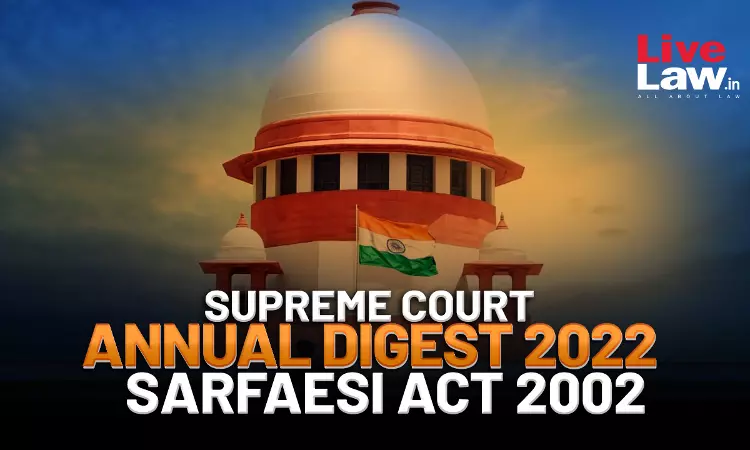Next Story
27 Jan 2023 10:27 AM IST
Securitisation and Reconstruction of Financial Assets and Enforcement of Security Interest Act, 2002 - After the CIRP is initiated, all actions including any action under the SARFAESI Act to foreclose, recover or enforce any security interest are prohibited. (Para 24, 35) Indian Overseas Bank v. RCM Infrastructure Ltd; 2022 LiveLaw (SC) 496 : AIR 2022 SC 2687 : (2022) 8...

